Introduction
Claims denial is a significant issue within the healthcare system, affecting not only healthcare providers’ financial viability but also patients’ overall satisfaction. When a claim is denied, it can lead to a cascade of negative experiences for patients, who may already be navigating complex health issues. The denial of claims can create a sense of frustration and helplessness, as patients often find themselves caught in a web of administrative processes that they do not fully understand.
This lack of clarity can lead to feelings of distrust towards their healthcare providers and the insurance system as a whole. Moreover, the impact of claims denial extends beyond immediate financial concerns. Patients may experience anxiety and stress as they grapple with unexpected medical bills or the possibility of having to pay out-of-pocket for services they believed were covered.
This emotional burden can detract from their overall healthcare experience, leading to dissatisfaction with their care. In an era where patient-centered care is paramount, understanding how claims denial affects patient satisfaction is crucial for healthcare providers aiming to foster positive patient relationships.
Key Takeaways
- Claims denial can have a significant negative impact on patient satisfaction
- Factors contributing to claims denial include coding errors, lack of pre-authorization, and incomplete documentation
- Claims denial can lead to emotional distress and financial burden for patients
- Strategies for improving patient satisfaction include proactive communication and transparency
- Advocacy and support are crucial in helping patients facing claims denial regain trust and loyalty
Factors Contributing to Claims Denial and its Effects on Patient Satisfaction
Several factors contribute to claims denial, each with its implications for patient satisfaction. One primary reason for denials is incomplete or inaccurate information submitted during the claims process. For instance, if a healthcare provider fails to include necessary documentation or if there are discrepancies in patient information, insurance companies may reject the claim outright.
This not only delays payment to the provider but also places an additional burden on the patient, who may be left in limbo regarding their financial responsibilities. Another contributing factor is the complexity of insurance policies themselves. Many patients struggle to understand their coverage, including what services are included and what exclusions may apply.
This confusion can lead to situations where patients receive care they believe is covered, only to find out later that it is not. Such experiences can erode trust in both the healthcare system and the insurance providers, ultimately leading to decreased patient satisfaction. When patients feel uninformed or misled about their coverage, it can create a sense of betrayal that lingers long after the initial denial.
The Emotional and Financial Toll of Claims Denial on Patients
The emotional toll of claims denial can be profound. Patients often experience heightened levels of stress and anxiety when faced with unexpected medical bills or the prospect of having to negotiate with insurance companies. This emotional strain can exacerbate existing health conditions, creating a vicious cycle where the stress of financial uncertainty negatively impacts physical health.
For example, a patient undergoing treatment for a chronic illness may find their recovery hindered by the added pressure of dealing with denied claims and mounting bills. Financially, the implications of claims denial can be devastating. Patients may find themselves responsible for costs they believed would be covered by insurance, leading to potential debt or even bankruptcy in severe cases.
The burden of these unexpected expenses can force patients to make difficult choices about their healthcare, such as delaying necessary treatments or foregoing medications altogether. This financial strain not only affects individual patients but can also have broader implications for public health, as untreated conditions can lead to more severe health crises down the line.
Strategies for Improving Patient Satisfaction in the Face of Claims Denial
| Strategies | Metrics |
|---|---|
| Enhance Communication | Percentage of patients reporting improved understanding of denial reasons |
| Streamline Claims Process | Reduction in average time taken to resolve denied claims |
| Provide Education | Number of patients participating in educational sessions on claims denial |
| Implement Technology Solutions | Percentage increase in successful resubmissions of denied claims |
| Empower Staff | Improvement in staff satisfaction and confidence in handling claims denial |
To mitigate the negative effects of claims denial on patient satisfaction, healthcare providers must adopt proactive strategies that prioritize clear communication and support for patients. One effective approach is to implement comprehensive patient education programs that inform individuals about their insurance coverage and the claims process. By equipping patients with knowledge about what to expect regarding their coverage, providers can help alleviate some of the anxiety associated with potential denials.
Additionally, healthcare organizations can enhance their billing practices by ensuring that all claims are submitted accurately and promptly. Investing in training for administrative staff on common reasons for claims denial can lead to improved accuracy in documentation and submission processes. Furthermore, establishing a dedicated team to handle appeals and disputes can provide patients with a sense of support during challenging times.
The Role of Communication and Transparency in Mitigating the Impact of Claims Denial
Effective communication is essential in addressing the challenges posed by claims denial. Healthcare providers should strive for transparency in their interactions with patients regarding coverage and billing practices. This includes providing clear explanations about what services are covered under a patient’s plan and what potential out-of-pocket costs may arise.
By fostering an environment where patients feel comfortable asking questions and expressing concerns, providers can build trust and enhance patient satisfaction. Moreover, timely communication regarding claims status is crucial. Patients should be kept informed about the progress of their claims and any issues that may arise during the process.
Implementing systems that allow for real-time updates on claims status can empower patients and reduce feelings of uncertainty. When patients are informed about their claims and understand the reasons behind any denials, they are more likely to feel satisfied with their overall experience, even in the face of challenges.
Addressing the Long-Term Consequences of Claims Denial on Patient Trust and Loyalty
The long-term consequences of claims denial extend beyond immediate dissatisfaction; they can significantly impact patient trust and loyalty over time. When patients experience repeated denials or feel unsupported during the appeals process, they may begin to question the reliability of their healthcare providers and insurance companies. This erosion of trust can lead to patients seeking care elsewhere or avoiding necessary treatments altogether, ultimately jeopardizing their health outcomes.
To counteract these potential consequences, healthcare organizations must prioritize building strong relationships with their patients. This involves not only addressing claims denials effectively but also demonstrating a commitment to patient-centered care through ongoing support and advocacy. By fostering an environment where patients feel valued and heard, providers can cultivate loyalty that transcends individual experiences with claims denial.
The Importance of Advocacy and Support for Patients Facing Claims Denial
Advocacy plays a critical role in supporting patients who encounter claims denial. Healthcare providers should consider implementing advocacy programs that assist patients in navigating the complexities of insurance claims and appeals processes. These programs can offer resources such as one-on-one consultations with trained advocates who can guide patients through their options and help them understand their rights.
Additionally, fostering partnerships with community organizations that specialize in patient advocacy can enhance support networks for individuals facing claims denial. These organizations often have valuable insights into navigating insurance challenges and can provide additional resources for patients seeking assistance. By creating a robust support system that empowers patients to advocate for themselves, healthcare providers can significantly improve patient satisfaction and outcomes in the face of claims denial.
Conclusion
Addressing claims denial requires a multifaceted approach that prioritizes communication, education, and advocacy. By understanding the impact of claims denial on patient satisfaction and implementing strategies to mitigate its effects, healthcare providers can foster stronger relationships with their patients while promoting better health outcomes overall.


